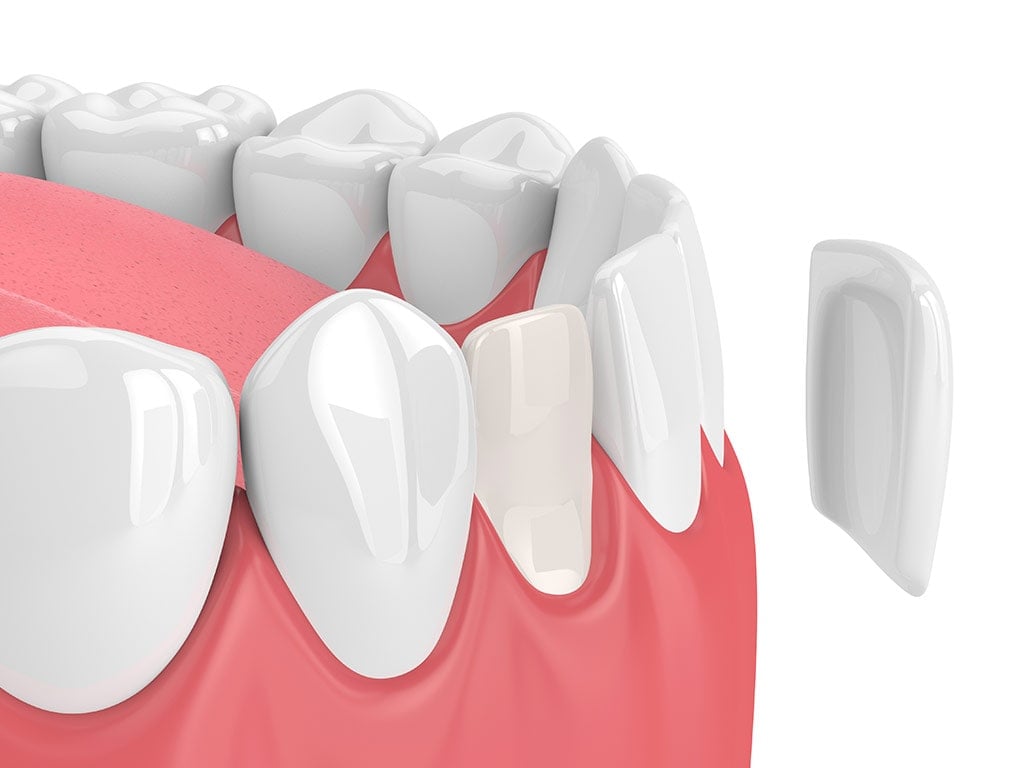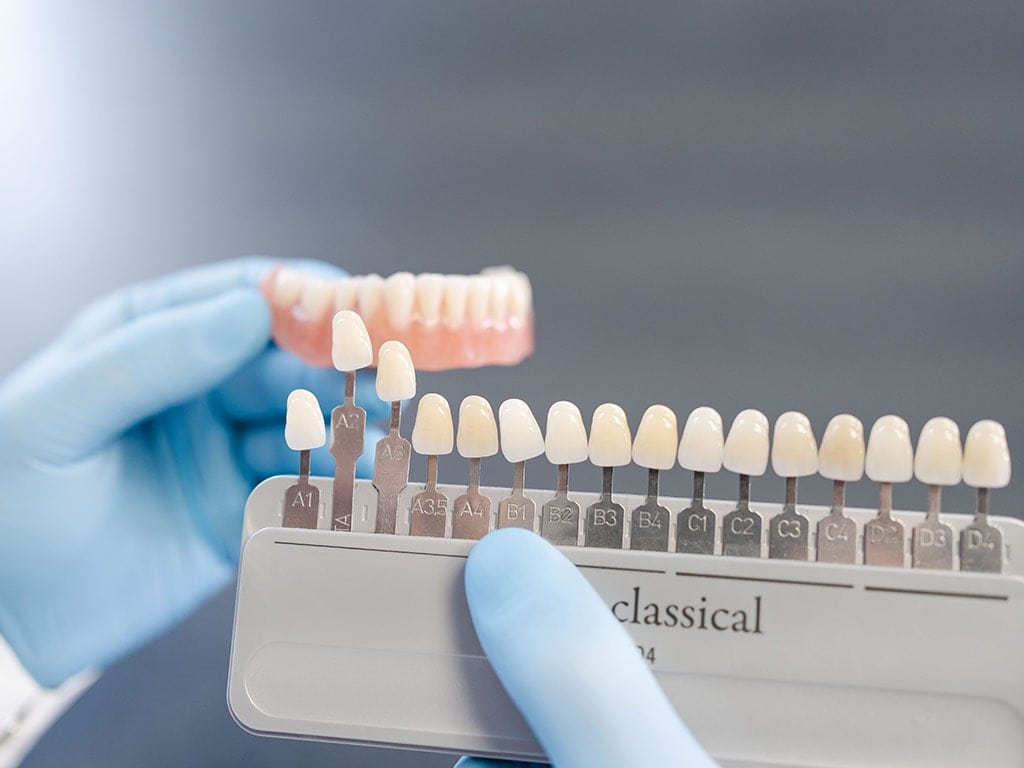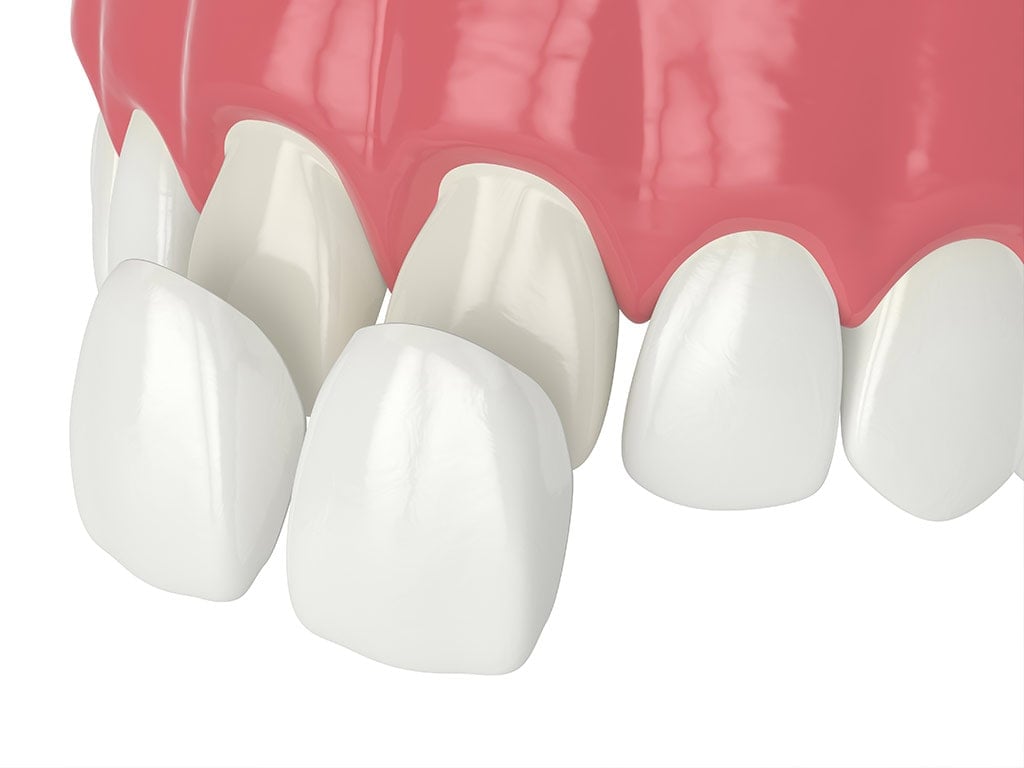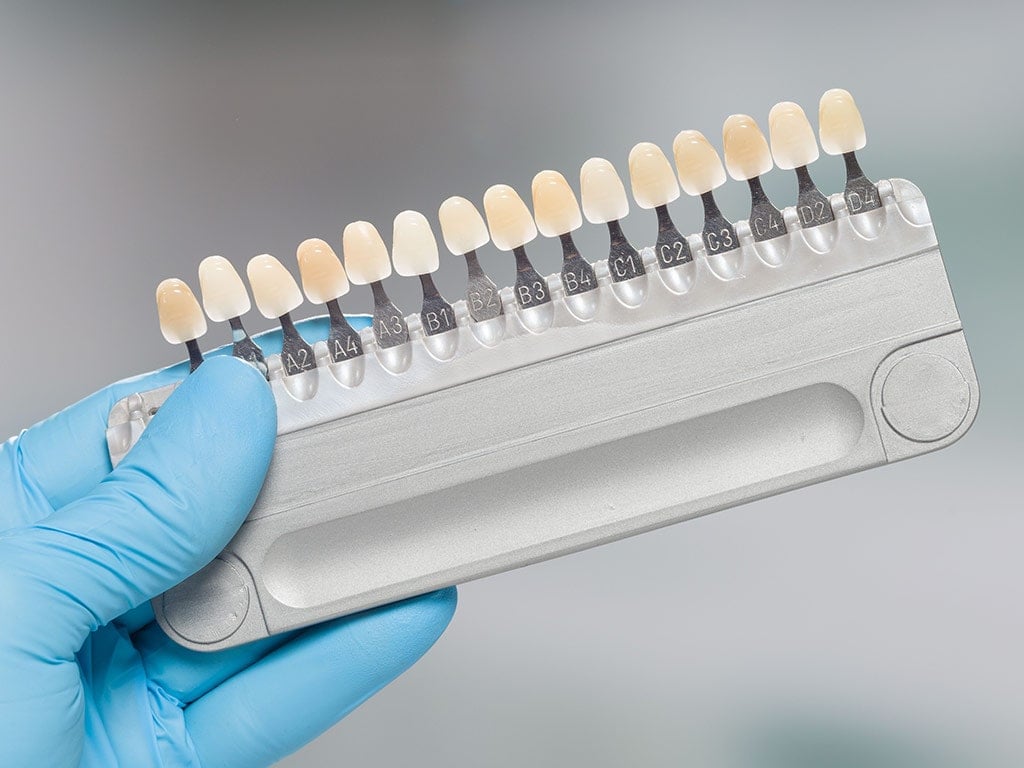WHY CHOOSE US AND LIMITED TIME OFFER
What Are Veneers?
Veneers are a cosmetic solution for small appearance issues with your teeth. It can cover chips, cracks, and other minor issues but isn’t a repair solution. It doesn’t strengthen your teeth but is a good option for overall improvement in appearance.
Veneers are made of one of two substances. They consist of either a composite resin or porcelain. They are crafted as customized, thin shells that cover the front of the tooth.

Benefits of Veneers
Veneers can dramatically improve your smile by covering small imperfections like chips and cracks. They can also wear down teeth so they look uniform and can, in some cases, cover misshapen teeth.
They Look Natural
Veneers can match your natural teeth in both shade and size. This makes your smile look natural. They also function as your natural teeth so there you don’t have to change your diet or treat them with special care.
This is an option that can be used on one tooth or several teeth to present a uniform smile. Some people can lighten the shade for veneers if they have their whole mouth done in them for a brighter smile.


Veneers Aren’t Invasive
Getting veneers doesn’t require surgery or even anesthesia to install. The veneer shells are cemented in place so they are permanent fixtures. It takes two or three office visits over three weeks to get the entire procedure done.
You will need to eat soft foods for a few days after getting veneers. You can resume a normal diet after you become used to them and your mouth and teeth adjust to them.
Easy To Maintain
Those with veneers maintain them the same way they do their natural teeth. Brushing and flossing twice a day will keep your veneers looking good. Patients should still visit the dentist twice a year for evaluations and cleaning to make sure their veneers remain in good condition
Veneers typically last for 10 to 15 years but can last longer depending on the proper oral care given to them.

Lower Cost Option
Veneers can cost between $1,000 and $3,000 with the composite resin variety being cheaper than porcelain. That may sound expensive but veneers can be cheaper than other cosmetic options like braces, reshaping, and bonding.
This can be a good option if you are prone to teeth that crack and chip often or have multiple teeth issues that would require extensive work to repair.
Protects Teeth
Although protection for teeth isn’t the purpose of veneers, the outer shell offers some additional coverage for teeth. That can help protect those with “soft teeth” while allowing for proper chewing function.
Knowing that you can chew normally without continually wearing down or chipping your natural teeth can provide a sense of relief.


Making Worn Teeth Uniform
Many older people like veneers because they often have teeth that are worn down and uneven after decades of use. Veneers make all teeth look uniform, straight, and even. They can also look whiter for those choosing a brighter shade. That can create a great smile!
Four-step Process for Installing Veneers
1. Assessment
A hygienist and dentist will first need to evaluate your mouth to see if you are eligible for veneers. This will involve taking X-rays, doing cleaning, and a physical evaluation. impressions or scans will be made so the veneers can be custom-made.
2. Removing Some Enamel
The second visit will involve the dentist taking off some of the enamel from the front of your tooth so the veneer fits properly. Only a portion of the enamel is removed and some will remain.
3. Etching Your Teeth
The dentist will then do what is called etching on the tooth. This is roughing up the portion of the tooth where the veneer will attach. This allows for better bonding between the veneer and the tooth.
4. Veneer Installation
The dentist will use a special cement to permanently attach the veneer to your tooth. The shell is attached and you will bite down and check it before the cement is applied. Once it’s in place, the dentist will use a light beam to activate the cement’s chemicals to quickly harden it.
Schedule an Exam for a Veneer Installation
Getting a veneer may make you anxious but it’s a straightforward procedure that can make a vast improvement in your life. Schedule an appointment for an exam to see if a veneer is a good choice for you.
Frequently Asked Questions About Veneers
Can teeth under veneers get cavities?
Teeth that are covered by veneers can still get cavities so it’s important to continue with a good oral hygiene routine. While the veneer covers the front of the tooth and protects it from things like sugars and acids, it leaves the back of the tooth exposed.
Do veneers stay cleaner than teeth?
Veneers are more stain resistant than teeth but still can collect plaque and tartar so it’s important to maintain your normal oral hygiene routine of regular brushing, flossing, and seeing the dentist twice a year.